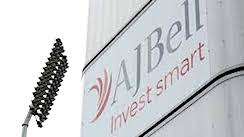Net sales of UK retail investment funds hit £2.8 billion in April this year, the highest level since August 2021, driven by demand for global equity and bond tracker funds in a busy ISA season — but consumers continued to spurn UK stock funds, according to the latest data from the Investment Association.
Miranda Seath, Director, Market Insight & Fund Sectors at the Investment Association, said: “The sharp rise in inflows can partly be attributed to the new tax year, with strong ISA sales during April as investors sought to maximise their personal allowances.
“Tracker fund sales reached a new record of £3.8 billion in April, a significant result after the toughest two years for fund flows the industry has ever seen.”
Investors looking for low-cost exposure to high-flying US tech stocks helped drive the inflows, according to Laith Khalaf, head of investment analysis at Salford-based investment platform AJ Bell, who said: “A lot of the positive inflows in April came from global equity and fixed income funds.
“Global equity funds offer a simple way for investors to gain access to international markets and have performed very well this year, driven higher by the likes of Nvidia, Microsoft, Alphabet and chums.
“Big flows into fixed income suggest investors are anticipating interest rate cuts and are locking into current high rates while also hoping to ride the capital appreciation lower yields would deliver to bonds.”
On the downside, investor interest in UK stock funds waned further.
“UK equity funds continued their slow, sad decline with a £1.3 billion outflow,” said Khalaf.
AJ Bell has already signalled its opposition to government plans to introduce a “British ISA” that would make it more attractive to invest in UK-listed companies.
“The government is going to need a much bigger bazooka if it wants to reverse the diminishing demand for the UK stock market,” said Khalaf.
“A cut to stamp duty on UK shares would be one bold step which could help catalyse greater levels of investment in UK plc.
“Active funds remain under the passive cosh too, and fund managers will be wondering how much longer they have to endure this freefall before they hit rock bottom.
“There were £3.8 billion of retail inflows into index trackers in April, which spells a £1 billion outflow from active funds.
“The ongoing shift towards passive investing has been partly driven by the melt-up of the biggest stocks in the US market producing strong performance from index trackers.
“Investors are now more benchmark aware, cost conscious, and many just want a simple option to plonk in their pension. Passive funds very much fit the bill.”
